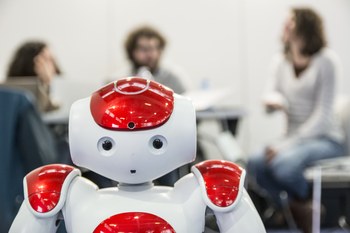Artificial Intelligence

In the last decade the development of artificial intelligence (AI) has experienced an unprecedented flourishing thanks to its highly interdisciplinary and transdisciplinary nature and the high level of both theoretical and technological development together with the recent availability of large collections of analyzable data. As a borderline among scientific, technological, social and humanistic disciplines, AI has performed and continues to perform an increasingly important role for the issues of cognition and knowledge in general, from the point of view of construction, representation, control, reproduction, management and exploitation of knowledge itself, and from the more general point of view of information. The recent development of an information philosophy, of the so-called data studies and of an epistemology connected to big data and new artificial technologies ranging from software applications to robotics gives crucial importance to issues related to AI, where the humanistic disciplines find a main room for reflection.
Sub-themes of interest are, among others:
• the reasoning between cognition and automation;
• machine learning and the epistemology of big data and information;
• artificial vision;
• language development and learning from a computational and/or cognitive point of view;
• data science;
• decision-making systems;
• the possibilities for regulating new technologies and systems for guaranteeing fundamental rights in the information society;
• the ethical and social implications of emerging technologies, including their uses;
• data studies and social studies of data infrastructures;
• the development and recognition of emotional states (also in relation to human-machine interaction);
• robotics from a cognitive and social point of view.
COPYRIGHT Foto di Claudio Turci